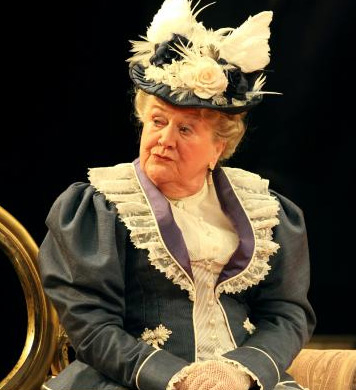An Ideal Husband (Chichester Festival Theatre)

© Catherine Ashmore
If there were such a game as fantasy casting – a stage version of the footballing – then the final production of Chichester's summer season would surely feature a winning team. Patricia Routledge? A Fox? A Redgrave? Robert Bathurst? All present and correct.
Throw in Oscar Wilde's classic tale of a man whose position in society could be threatened by his own dark secret, and you have all the ingredients for a great evening at the theatre.
There are the usual Wilde witticisms; barbs thrown at politicians and the upper classes, with many of the lines having a particular resonance today; when Sir Robert Chiltern, the eponymous ideal husband, proclaims that "spies are of no use nowadays. Their profession is over. The newspapers do their work instead", it's as if Wilde had anticipated the world of phone hacking.
And yet this is a less than ideal production. For a start, despite the modern parallels, it's a curiously old-fashioned piece. The central premise is exceedingly dated – the idea that a politician's career could be ruined by a piece of insider trading seems bizarre in an era of house-flipping and duck houses.
The Wildean epigrams do pall after a while and slow up the action. Patricia Routledge handles the minor part of Lady Markby superbly, and garners most of the night's laughter, but she adds nothing to the plot and makes a creaking piece even more unwieldy.
Is this is collection of one-liners? Is this an old-fashioned melodrama? Rachel Kavanaugh's production never seems to pull the threads together. The pace is deathly slow and for a play with such a threadbare plot and so little character development; its three hours duration is far too long.
There are some decent performances, especially Jamie Glover's witty and cynical Lord Goring and Amy Morgan's sparky Mabel Chiltern. Edward Fox's Lord Caversham is almost inaudible at the start but comes into his own in the final scene, dispensing bon mots like sweets to children.
Jemma Redgrave's Mrs Cheveley has the sultry and seductive voice of an adventuress but never really convinces as a villain; her scenes with Laura Rogers' Lady Chiltern are supposed to be battles between two arch-enemies, yet there's scarcely a hint of malice. And Robert Bathurst struggles manfully with the compromised Sir Robert but can make him little more than a caricature. But then Wilde was scarcely interested in analysing character, the temptation for another witty one-liner was always too great.










